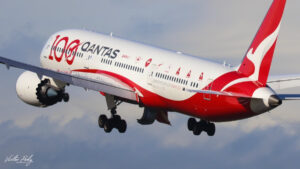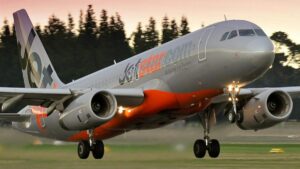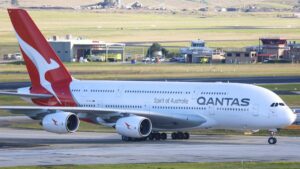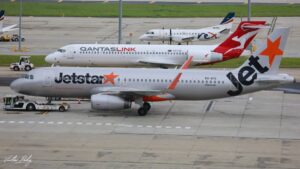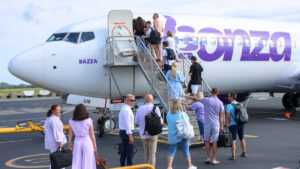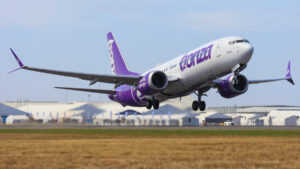
A former deputy fire commissioner of NSW has said “not much seems to have been done” a year to the day since the Bushfires Royal Commission report was published.
“We don’t think much has changed since the fires of 2019-20,” said Jim Smith. “We don’t feel any safer than we did before.”
The technically titled Royal Commission into National Natural Disaster Arrangements released its final report 12 months ago. Its most significant recommendation was the call for a new “sovereign aerial firefighting capability” that can be easily shared between areas in need.
However, no such fleet has yet to be formed, with the federal government’s formal response being that it simply “notes” the recommendation.
Smith, a former Deputy Commissioner of Fire and Rescue NSW, was speaking in his capacity as a member for Emergency Leaders for Climate Action (ELCA), a campaign group composed of 33 former fire and emergency service chiefs.
“Many people are living in fear of the next fire,” said Smith. “Without emissions reductions this decade, it’s just going to keep getting worse. At the very least, every recommendation of the Royal Commission should be implemented.”
Fellow ELCA member Greg Mullins, a former NSW fire commissioner, added, “Those of us that hold hoses and are in the direct firing line of climate change impacts are still waiting for the government to show that it is taking the royal commission’s report seriously.
“The federal government has completely dropped the ball on addressing the commission’s recommendations. To protect Australians, the government must now enact the steps outlined in the recommendations without further delay.
“They must also tackle the root causes of worsening bushfires and other extreme weather, by committing to much stronger emissions reductions this decade while moving rapidly away from coal, oil and gas.
Free Aviation news, delivered to your inbox
Sign up to our Australian Aviation Express email newsletter to receive the latest in aviation.
“No more excuses. As the world gathers for COP26 in Glasgow, we must commit to shifting to a clean, resilient economy. We can’t wait for another Black Summer to be on our doorstep before we act.”
Mullins appeared on the Australian Aviation podcast earlier this month, which you can listen to above, and also urged the federal government to invest in Viking “super scooper” aircraft.
The Viking “super scoopers” (technically the CL-415 and 215 variants) are specialist firebombers, particularly suited to heavily forested areas.
The amphibious aircraft can literally scoop up 5,455 litres of water in just 12 seconds from a water source, as opposed to the slower turnover times of more traditional models using buckets or hoses.
However, each super scooper is thought to cost more than $40 million, a figure that alone dwarfs current federal and state aid.
Mullins also urged the federal government to finally follow the Bushfires Royal Commission’s recommendation to invest in a sovereign aerial firefighting fleet.
“The fires just become worse and worse,” said Mullins. “And it’s very clear to us that the climate is changing, and we’ve reached a tipping point with bushfires worldwide.
“We’ve seen this year Siberia burning, Greece, Italy, Spain, California, Canada and that’s off the back of heat waves that killed hundreds. So, they’ve got these massive fires and they are behaving differently.
“And what frightens me is that I went to California in October 2019 to the Kincade Fire in Sonoma County and the firefighters over there are saying exactly the same thing.
“We don’t know how to fight these fires. Our traditional tools such as hazard reduction burning, back burns and attacking fires at night don’t work anymore in the worst conditions.
“Fires will burn through hazard reduced areas unless it was burnt the last 12 months. Back burns get away from us, and fires are burning overnight because the humidity stays down, and the wind stays strong because of changes to weather patterns.”
Mullins talks about the issue in his new book, Firestorm: Battling Super-Charged Natural Disasters.
The Royal Commission into National Natural Disaster Arrangements was first proposed by Prime Minister Scott Morrison in February 2020 and was headed by former Federal Court judge Annabelle Bennett, leading environmental lawyer Andrew Macintosh and former ADF chief Air Chief Marshal (Ret’d) Mark Binskin.
The commission received more than 1,700 submissions and heard from more than 290 witnesses.
Start your very own aviation journey with Australian Aviation. Sign up today for as little as $49.95 and you’ll enjoy access to:
You can always rely on us to keep you in the know.
Join now and start enjoying all these benefits today.
- "
- 2019
- 2020
- 7
- access
- Action
- aircraft
- All
- auto
- aviation
- Black
- california
- call
- Campaign
- Canada
- Capacity
- change
- chief
- climate action
- Climate change
- Coal
- commission
- county
- Court
- Current
- day
- delay
- DID
- disaster
- dropped
- economy
- Emissions
- environmental
- Federal
- Federal government
- Figure
- Finally
- Fire
- First
- FLEET
- follow
- GAS
- Government
- Greece
- Group
- head
- hold
- How
- How To
- HTTPS
- Hundreds
- IT
- Italy
- latest
- leading
- Line
- mark
- million
- months
- news
- Newsletter
- Oil
- Oil and Gas
- Other
- People
- podcast
- Podcasts
- protect
- report
- response
- shared
- So
- Spain
- start
- State
- Stories
- summer
- Talks
- the world
- Tipping
- Tipping point
- us
- wait
- Water
- waves
- weather patterns
- wind
- Work
- world
- worldwide
- year


